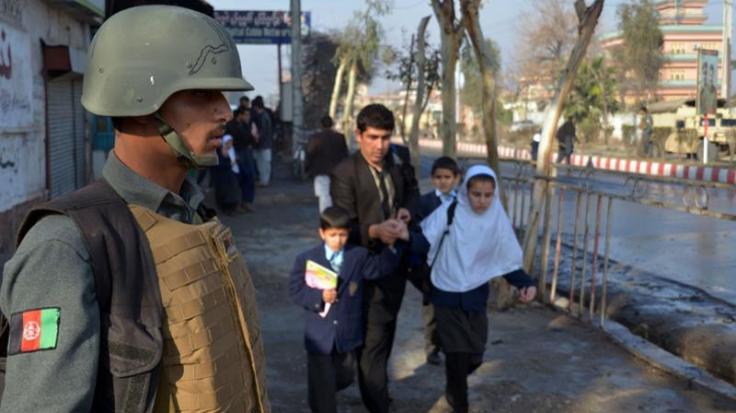Everyday more than thousand children drop out of school in Afghanistan

Hundreds of thousands of Afghan children are expected to drop out of school this year, leaving them exposed to significant risks, an international aid group has warned.
In a report published on Thursday, Save the Children said that more than 400,000 children in Afghanistan, more than 1,100 a day, might not attend classes, citing a growing instability in the country and a spike in forced returns from Pakistan.
The projection comes on the first day of the Afghan new school year, when almost a third of all children across the country - 3.7 million - are unable to go to school, leaving them at increased risk of child labour, recruitment by armed groups, trafficking, early marriage and other forms of exploitation.
"Today should be a happy day in Afghanistan as children go back to class for the first time after a long winter. Instead it is a day cloaked in tragedy for the millions who can't access education and are struggling to survive," Ana Locsin, the charity's Afghanistan director, said in a statement.
More than 900 children were killed last year amid major flare-ups in fighting across the country, making 2016 the deadliest year on record for minors in a country that has suffered through decades of war and conflict.
Matiullah Wesa, who started a volunteer organisation called The Pen Path, has been campaigning across Afghanistan to reopen schools and has been conducting open-air classes in some of the worst-affected conflict areas.
"This is a matter of grave concern that our country is lagging behind every year in the education sector. This exposes many children to various forms of violence, exploitation and abuse," Wesa told Al Jazeera from Afghanistan's capital, Kabul.
Last year, Wesa's organisation initiated a national book drive that has helped establish several libraries in war-struck provinces such as Kandahar, Uruzgan, Ghazni Kunar and Helmand.
He aims to provide books to every child in a house and make it available to them when schools are not accessible.
"Education is the key for a better society but I have seen how this war in Afghanistan has affected so many children who are so talented but are unable to go to schools," Wesa said, adding that he will continue to fight for the cause.
The country's education crisis is made worse by a tightening of regulations by authorities in Pakistan, which forced more than 610,000 Afghans to return from Pakistan in 2016, Save the Children said.
An additional one million are expected to come back this year, threatening to overwhelm already strained health and education services.
More than half of all returnee children are currently out of school, often working on the streets because their parents have not been able to find a job since arriving back in Afghanistan.
Inzar Gul is one of the returnees who is living in an internally displaced person's camp in Kabul. A father of four, he says he can only think about providing food to his family.
"We've lived in Pakistan for years, we had our business there, our children were going to school, but now that we have returned back to Afghanistan, we have nothing left. I have nothing else to think about than to just provide food and shelter to my family," Gul told Al Jazeera.
"Education cannot be a priority when you are starving, when you don't have basic necessities of life."
This year, the United Nations predicts that 450,000 Afghans will be displaced due to violence, while more than 9.3 million people across the country will need urgent humanitarian assistance, including more than one million children suffering acute malnutrition.
Source: AL Jazeera
